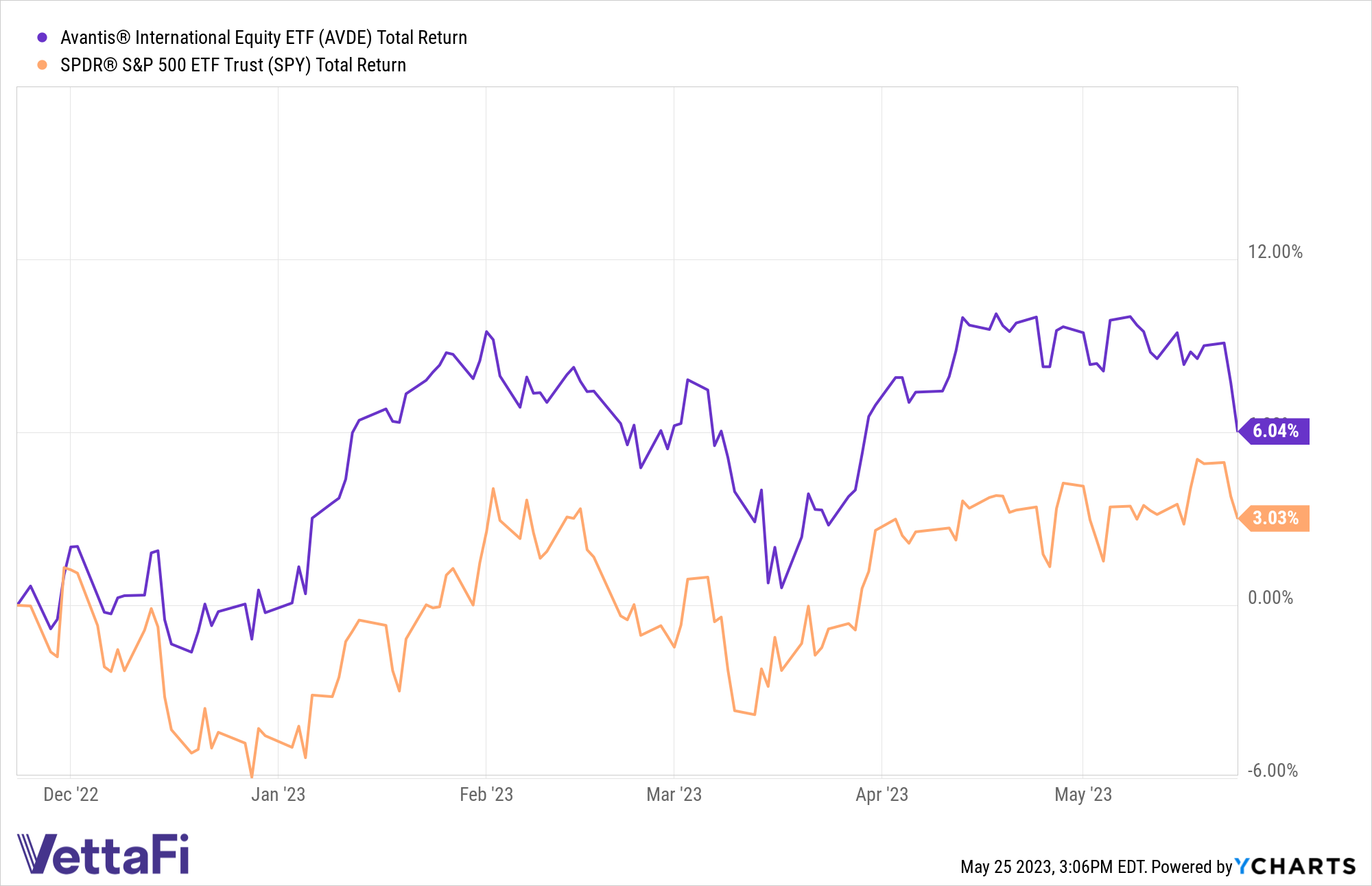Is this time different? U.S. debt ceiling negotiations are struggling, and with GOP members of Congress gone for Memorial Day weekend, prospects seem bleak. International equities had been appealing to U.S. investors already. With the possibility of a U.S. default, though, investors may want to take a closer look at a foreign equity ETF.
Why look abroad? For one thing, foreign central banks raised their interest rates before European banks and the Fed did. By doing so, those nations were able to tamp down on inflation more aggressively and are already somewhat over the hump there. That’s not only helped secure those economies — it has also made non-U.S. and emerging markets debt more appealing, too.
See more: “American Century’s Huang on Emerging Markets Debt Investing Opportunities”
Foreign equities also appeal given how the high values of U.S. equities have reached. What’s more, foreign equities aren’t bad on their own, either. China’s reopening has had a knock-on effect on equities around the region while also upping demand for commodities.
A Solid Foreign Equity ETF Candidate
The Avantis International Equity ETF (AVDE) stands out as an option in that group. AVDE charges a 23 basis point fee to actively invest in non-U.S. developed markets. It also focuses on smaller value and high profit names, assessing categories like shares outstanding, cash flow, revenue, and more. AVDE is also allowed to exclude large-cap names.
AVDE has returned 8% YTD, outperforming both of its ETF Database category average and FactSet segment average. It’s also pulled in a whopping $205 million in one-month net inflows, on top of $1.3 billion in one-year net inflows overall.

AVDE vs. SPY
Crucially, that also takes AVDE to almost $3 billion in total AUM. The strategy needs less than $100 million to join the recent run of Avantis ETFs that have reached AUM milestones. Altogether, those factors contribute to a solid case for AVDE as a tool to diversify away from a tumultuous U.S. market.
For more news, information, and analysis, visit the Core Strategies Channel.


